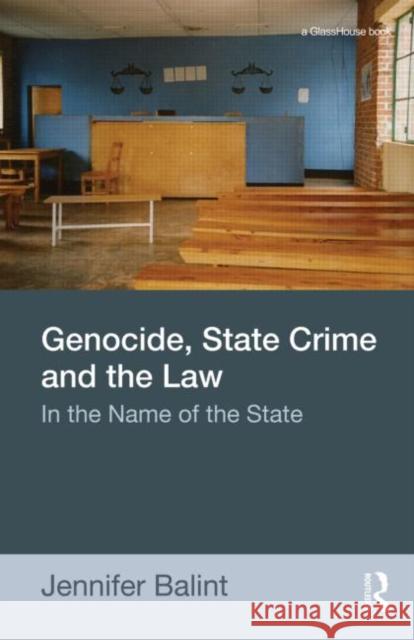Genocide, State Crime and the Law : In the Name of the State » książka
Genocide, State Crime and the Law : In the Name of the State
ISBN-13: 9780415543811 / Angielski / Twarda / 2011 / 256 str.
Genocide, State Crime and the Law : In the Name of the State
ISBN-13: 9780415543811 / Angielski / Twarda / 2011 / 256 str.
(netto: 692,55 VAT: 5%)
Najniższa cena z 30 dni: 705,23
ok. 22 dni roboczych
Bez gwarancji dostawy przed świętami
Darmowa dostawa!
'Genocide, State Crime and the Law' argues that genocide and other forms of state crime must be located in relation to cultural, political and legal processes if they are to be properly understood and addressed.
Genocide, State Crime and the Law argues that genocide and other forms of state crime must be located in relation to cultural, political and legal processes if they are to be properly understood and addressed.
Discussing a series of case studies of genocide - in Armenia, Nazi Germany, Cambodia, South Africa, Ethiopia, Rwanda and the former Yugoslavia - the book is oriented towards two post-conflict problems: how to address the institutional dimensions of the harm perpetrated, and to what extent law can lay claim to being a re-constitutive actor. Such occurrences of genocide are regularly considered as an event that is disconnected from the particular character of the society in which it occurs. But it is with reference to their distinct cultural, political and legal contexts that, Jennifer Balint maintains, genocide must be approached. It is not, she argues, new institutions that are needed; but a new approach to addressing genocide and state crime - one that takes into consideration its broader social, historical and institutional dimensions. Only then is it possible to understand the limits and the potential of post-conflict political-legal processes.
An important, and indeed vital, contribution to the growing interest and literature in the area of post-conflict studies, Genocide, State Crime and the Law will be of considerable value to those concerned with lawâs ability to be a force for good in the wake of harm and atrocity.











